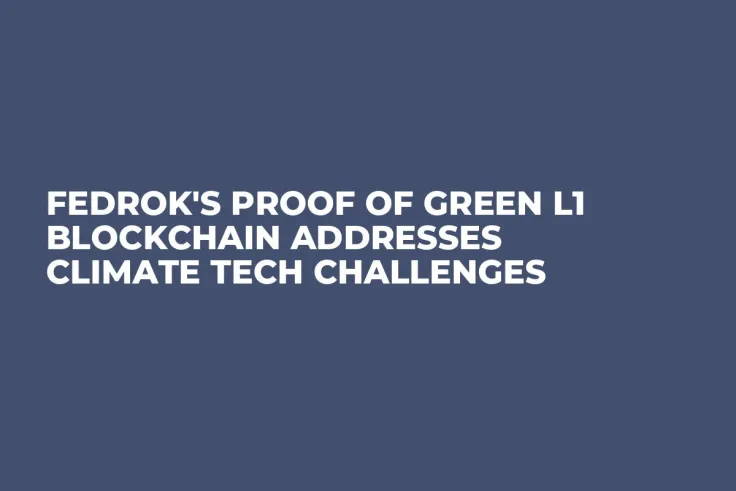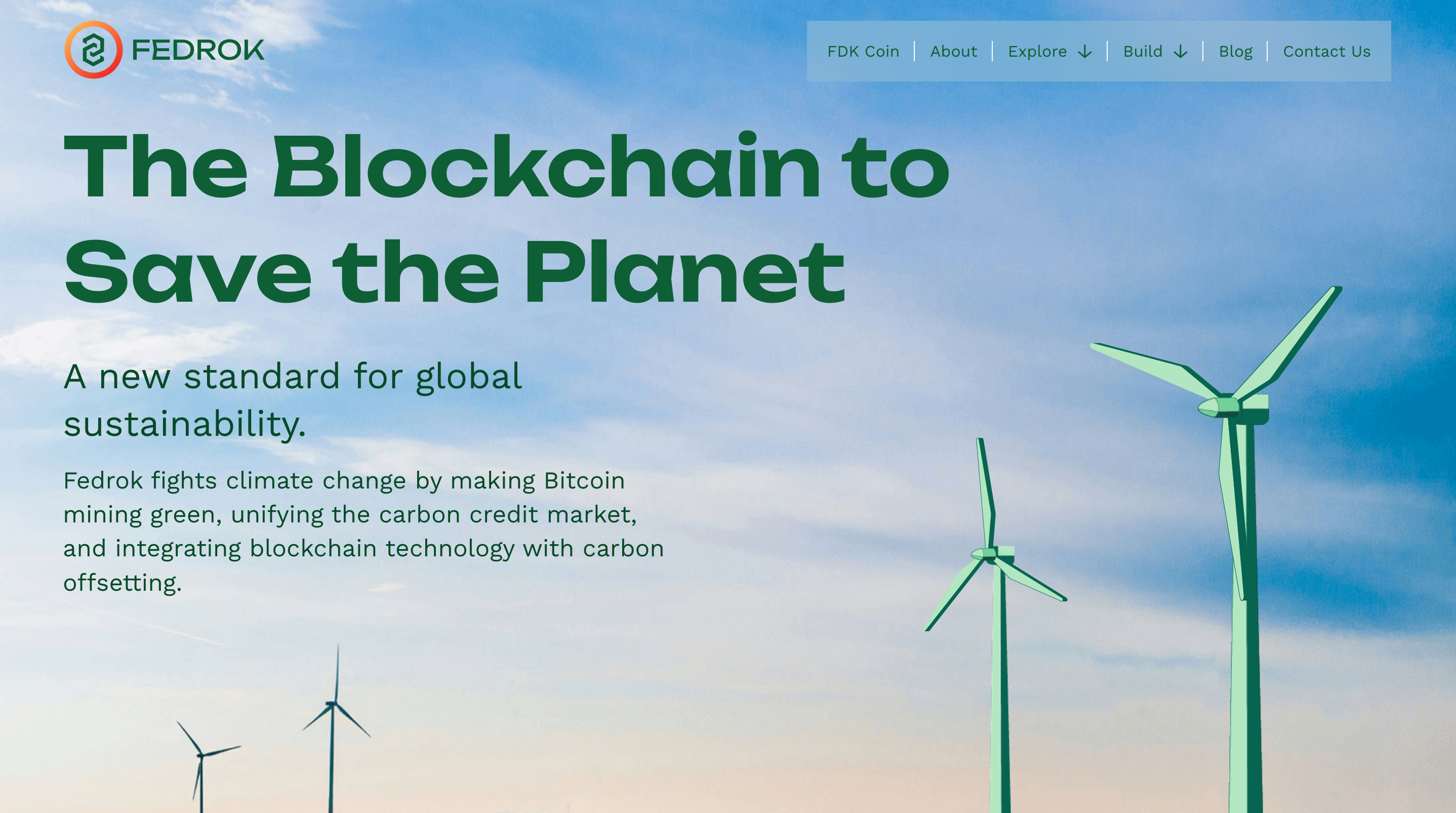
Disclaimer: The opinions expressed by our writers are their own and do not represent the views of U.Today. The financial and market information provided on U.Today is intended for informational purposes only. U.Today is not liable for any financial losses incurred while trading cryptocurrencies. Conduct your own research by contacting financial experts before making any investment decisions. We believe that all content is accurate as of the date of publication, but certain offers mentioned may no longer be available.
Fedrok, the first-ever “L1 blockchain for sustainability,” fosters a green economic ecosystem globally, restores mangrove forests and promotes responsibility initiatives in various regions across the globe.
Fedrok changes status quo in climate tech with blockchain
Fedrok, a Swiss-headquartered blockchain development company, is working on reinventing the truth and inclusivity of tech-backed sustainability initiatives. The company doubles down on a democratic and infrastructure-first approach.

The company combines blockchain engineering with regulatory alignment, including ISO 9001 and 14001 certifications and an active pursuit of VQF membership. It pioneered proof of green, a sustainable, scalable rewards model for PoW cryptocurrencies, including Bitcoin (BTC).
Fedrok leverages a dual-layer validation model where block rewards are distributed based not only on securing the network but on verifiable contributions to environmental goals. Miners must meet technical criteria first, then earn preferential rewards based on verified green credentials tied to satellite imagery, IoT sensors and third-party registry verification.
The company integrates memory-heavy nodes that validate blocks using data from the Bitcoin network, not to replicate BTC but to strengthen security through external proof. It is a deliberately intensive system architecture, designed for trust, not traction metrics.
Philip Blazdell, Fedrok CEO, shares his understanding of trust in Web3 usage within the climate tech segment:
Financial inclusion doesn't start with technology, it starts with relevance, access, and trust. I'm not a crypto bro, I'm a systems engineer.
CEO Blazdell also stressed that what keeps progress up in the segment is not just regulation or adoption, it is aligning ambition with execution.
Powering green economies in West Africa and South Asia with Web3 tech
To bring balance back, Fedrok is working directly with governments and community partners to develop the infrastructure behind emerging blue and green carbon markets, from coastal cooperatives in West Africa to Southeast Asian nations.
In Papua New Guinea, Fedrok, together with local partner Howarig Traders, is building the T4G Pay project, which enables tribal landowners to receive blockchain-based payments for verified mangrove restoration. In Madagascar, it is piloting a “Cash-for-Trash” initiative with social enterprise Greentsika, where local communities earn tokenized micro-rewards for collecting plastic waste. In Chad and Niger, Fedrok has launched a grant-funded initiative to support local developers building low-cost, mobile-first MVPs for climate-linked digital transactions.
The company is also advising the Seychelles government on the design of traceable blue carbon registries and has signed a formal MoU in India with TechXEarthSpace to tokenize carbon credits from CO₂ removal and underground storage technologies, expanding its reach into industrial carbon markets.
What ties these projects together is not just technology but verification. The T4G model offers a blueprint: verified landowners receive blockchain-based payments tied to environmental outcomes, backed by third-party data and real-time monitoring. But for the system to scale, the human infrastructure, local trust, governance, access must grow with the technical infrastructure.
In all of its endeavors, the company is betting big on sustainability and long-term impact. The work with mangrove forests exemplifies Fedrok’s mission here. These forests growing in restored coastal areas may be slow to mature, but they are building something bigger than carbon storage. They are testing whether technology can create accountability where it has never existed before. They want to see whether communities can control climate finance instead of being controlled by it.
As such, Fedrok’s approach implements developments never seen before and introduces real inclusivity, trust and innovation to the Web3 segment of climate tech.
 Alex Dovbnya
Alex Dovbnya Arman Shirinyan
Arman Shirinyan Denys Serhiichuk
Denys Serhiichuk